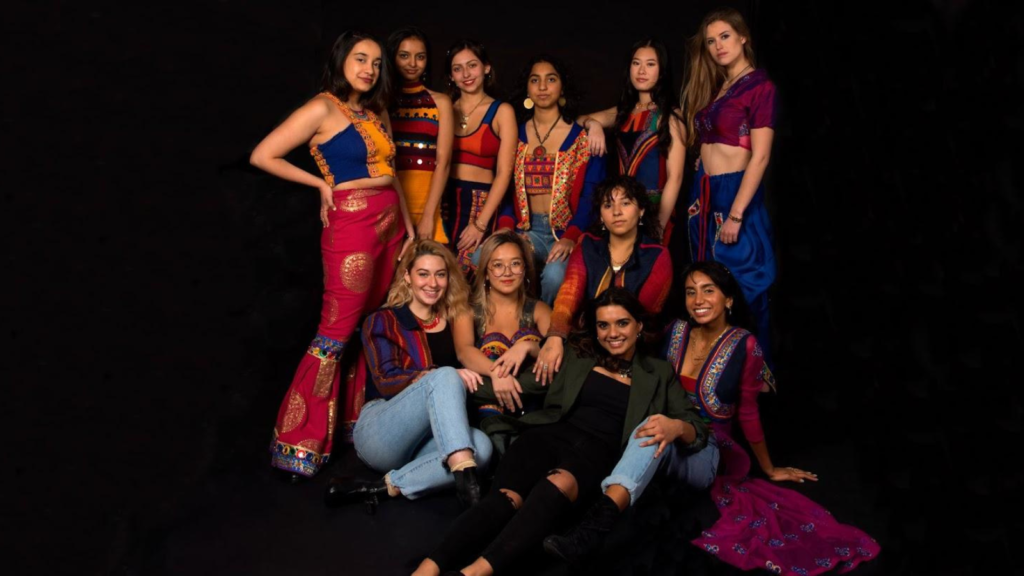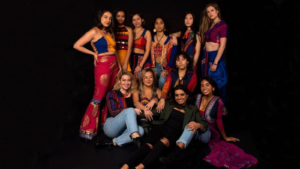Sukalp Bhatija transforms traditional textiles into modern statements of sustainability

Photo courtesy of Sukalp Bhatija
Opinions expressed by Digital Journal contributors are their own.
Amid fast-paced consumerism and fleeting trends in today’s fashion industry, consumers have started a movement that values craftsmanship over mass production and tradition over transient fads. The movement champions sustainability over the wastefulness that defines modern apparel. Leading this movement is Sukalp Bhatija, founder of the slow fashion brand Sukushine, known for its harmonious blend of South Asian textile heritage and contemporary design.
From her deep-rooted connection to traditional South Asian motifs to her embrace of sustainability, Sukalp Bhatija is transforming how people think about clothing, fashion, and cultural narratives.
“I’ve always felt that fashion is beyond what you wear,” she reflects. “It’s about telling a story — your story, your culture’s story, and connecting people across cultures.” This belief embodies cultural storytelling through clothing, central to Sukushine, a brand that celebrates traditional Indian textiles while making them relevant in the modern fashion landscape.
Rooted in tradition and empowerment
Born in Delhi and later immigrating to the United States at 11, Bhatija experienced the dual influences of South Asian culture and American innovation. Her fascination with Indian textiles — vibrant colors, bold patterns, and intricate embroidery — became a touchstone of her identity. However, as an immigrant in 2009, she struggled to feel at home, often facing cultural dissonance. “Clothing became a way to reconnect with my roots,” she shares. “Through Sukushine, I aim to modernize traditional textiles so that everyone can celebrate them.”
Her academic journey began at the Maryland Institute College of Art, where she studied Fiber/Textile Arts, and continued with a master’s degree in Strategic Design and Management at Parsons School of Design. These experiences shaped her creative vision and entrepreneurial drive.
Sukushine partners exclusively with women-led small-batch manufacturers in India, prioritizing ethical production and craftsmanship. “Our mission is to empower women artisans by providing them fair wages and opportunities to shine,” says Bhatija. This ethos is reflected in every step of the production process, from handloom weaving and block printing to the final stitching. By emphasizing traditional methods, the brand ensures that these art forms are preserved and adapted for the modern global audience.
Slow fashion, fast growth
Since its launch, Sukushine has carved a niche in a competitive market. The brand’s debut collections were featured at the South Asian New York Fashion Week, showcasing the vibrancy and intricacy of Indian textiles to a global audience. In 2023, Sukushine’s Rangeen Collection earned critical acclaim at New York Fashion Week. Sukushine’s garments have also been spotlighted at renowned pop-up markets such as The Maker’s Show and Hudson Yards Spring Fling.
However, navigating this space comes with challenges. Bhatija has faced pushback from some customers who claim her designs are “too Indian” or “too colorful.” She acknowledges that such feedback can be disheartening but remains committed to celebrating her culture. “Indian design is inherently maximalist,” she explains. “I hope to reach people who value its vibrant complexity and connect with the story and mission of Sukushine.”
Despite these obstacles, Sukushine has become synonymous with quality over quantity. By focusing on garments meant to be cherished for years, the brand aligns with a growing consumer demand for eco-friendly, ethically produced clothing. Experts predict the global slow fashion market to grow by 10-12% annually, offering Sukushine opportunities to expand its impact and influence.
Bridging tradition and technology
Bhatija’s work at PhygiLab, a startup exploring physical and digital fashion spaces, introduced her to the potential of blockchain technology in the textile industry. At Sukushine, she integrates these insights to ensure transparency in the supply chain. “Blockchain allows us to verify that every material used aligns with our sustainability mission,” she notes. Though still in its early stages, the technology exemplifies Sukushine’s innovative approach to sustainability.
For Bhatija, Sukushine is more than a fashion brand — it is a platform for connection and cultural celebration. “Owning a business that highlights Asian American culture is deeply rewarding,” she shares. “I aim to connect with other immigrants who share a longing for their roots. Self-expression through clothing is a powerful way to build community.”
Sukushine’s mission resonates within the AAPI (Asian American and Pacific Islander) community and beyond. By showcasing handcrafted, ethically produced textiles, the brand highlights the value of preserving traditional craftsmanship in a world driven by mechanization and mass production. Bhatija envisions Sukushine expanding to design textiles for major fashion houses and reaching a broader South Asian audience.
Tradition, sustainability, and global impact
As the global fashion industry grapples with issues of sustainability, ethics, and overconsumption, Sukushine offers a model that prioritizes tradition, innovation, and community. “I want Sukushine to be more than just clothes,” Bhatija concludes. “I want it to represent the beauty of our craftsmanship and help audiences connect with the richness of South Asian culture.”
Through her dedication to storytelling, sustainability, and empowerment, Sukalp Bhatija is redefining the future of fashion — one vibrant, handcrafted piece at a time.
Sukalp Bhatija transforms traditional textiles into modern statements of sustainability
#Sukalp #Bhatija #transforms #traditional #textiles #modern #statements #sustainability





